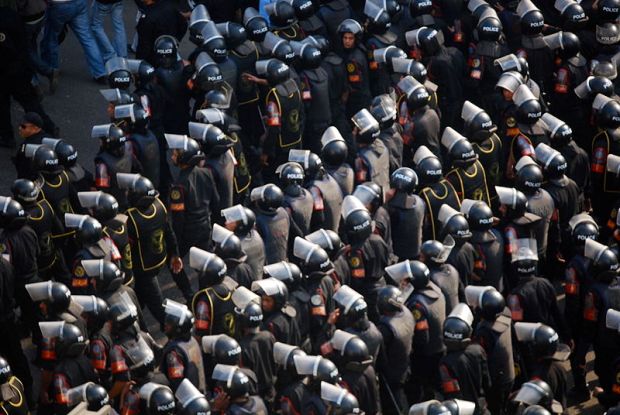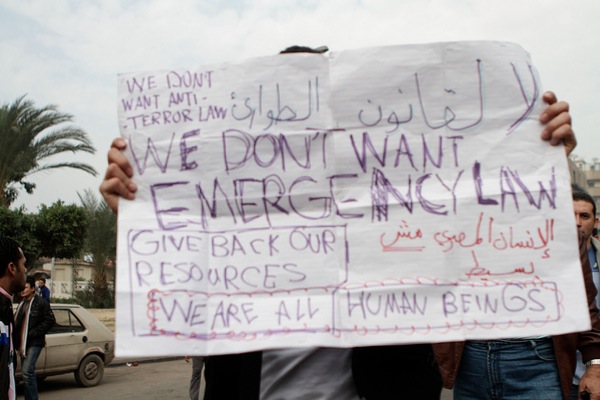In Israel, media coverage of the Egyptian uprising has been superficial at best. Most Israelis know little about the Arab world and are indifferent to the issues that brought Egyptians to the streets; instead, they focus on their fear that the Muslim Brotherhood, which is perceived as hostile to Israel, would fill a power vacuum left by the Mubarak regime
By Elizabeth Tsurkov
Most Israelis didn’t see the protests in Egypt coming. The protests rocking Egypt for the past three days have left many Israeli spectators and analysts confused. If the downfall of Mubarak was supposed to mean a takeover of the Egyptian Muslim Brotherhood, why don’t they have a prominent role in the unrest? If the only demands Arabs can articulate are about jobs and food prices, why are protesters demanding the removal of the regime? But the question that hung above it all was “what does this mean for Israel?”, with most analysts (and surely the Israeli government) agreeing that the fall of Mubarak, which seems like a realistic outcome of the nation-wide unrest, is bad for Israel.
In discussions I’ve had with people since the beginning of protests in Egypt, several points became clear. The most obvious one is that the majority of Israelis don’t really care about what is happening in the countries neighboring them, at least not until events become significant enough to potentially affect Israel. Another important phenomenon is that the Israeli media managed to cover the protests without addressing the core of the issue, which are the demands of the Egyptian people that have brought them out into the streets and made them willing to face harsh treatment from the police. Instead, the Israeli media either discussed how this affects Israel and how violent all the images flashing on TV seem.
Israel’s lack of understanding of the Arab world is significant and is a result of numerous factors, including the protracted Arab-Israeli conflict though which the Arab world is viewed in Israel, extreme focus on how outside events affect Israel and not on what’s actually going on mixed with paranoia, and good old racism. The reason Israelis didn’t see these protests coming (as well as the fall of Ben Ali in Tunisia) is a result of this lack of understanding. In the Israeli mind, the so-called “Arab street” is connected to violence, anti-Israeli and anti-US sentiment (which are kept at bay by the rulers), poverty, conservatism and Islamism. What never enters into the Israeli discussions about the “Arab street” is the yearning of Arabs for freedom and a dignified living of which they’ve been deprived for decades. Israelis cannot imagine that Arabs, just like them, would like to have freedom of expression and assembly and that they would be willing to fight and die to achieve those rights.
When possible scenarios are mentioned (and experts in Israel and the Israeli government have been skeptical about any major consequences of this until yesterday), the fear of the Muslim Brotherhood pervades every discussion. Even when commentators agree that the Muslim Brotherhood is not behind the protests, experts are quick to point out any instances where Muslim Brotherhood involvement in visible or imagined. Experts fear that the unrest and lack of leadership of the protesters will result in a Muslim Brotherhood takeover. But above all, the Israeli government and many Israelis fear democracy in Egypt, in which the Muslim Brotherhood will be able to get elected in fair and free elections. The specter of what happened with the Hamas takeover of Gaza after the free elections in the Palestinian Authority looms large over this discussion.
All over the Middle East, people have had enough of their oppressive and corrupt regimes and witnessing the uprisings in Tunisia and Egypt has emboldened them to demand their rights. Israel is supporting a status quo that is unsustainable and the sooner it realizes that and prepares for a future where the people of the Middle East govern themselves, the better.
Elizabeth Tsurkov studies media and international relations at the Hebrew University. She is closely following events in Egypt on Twitter.


